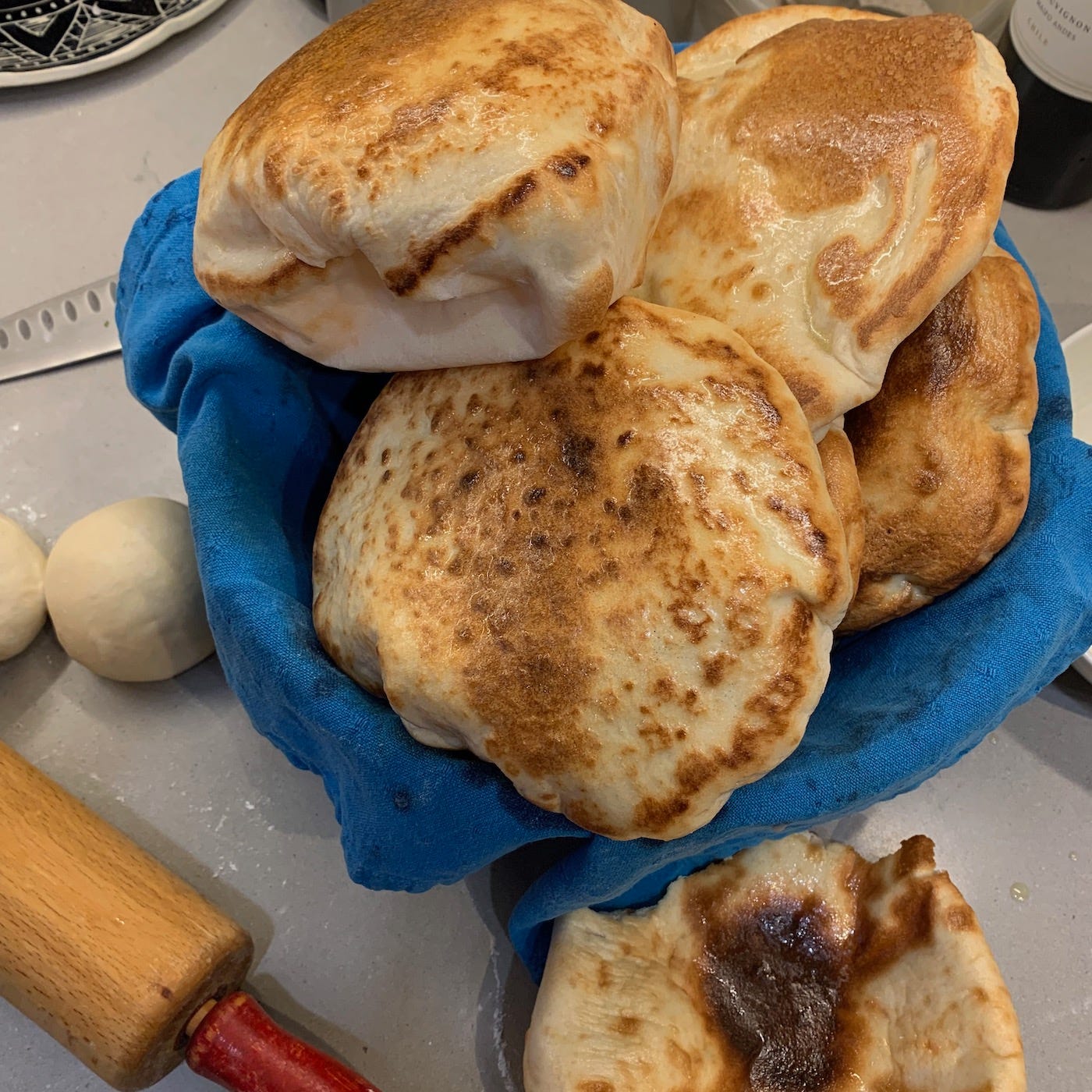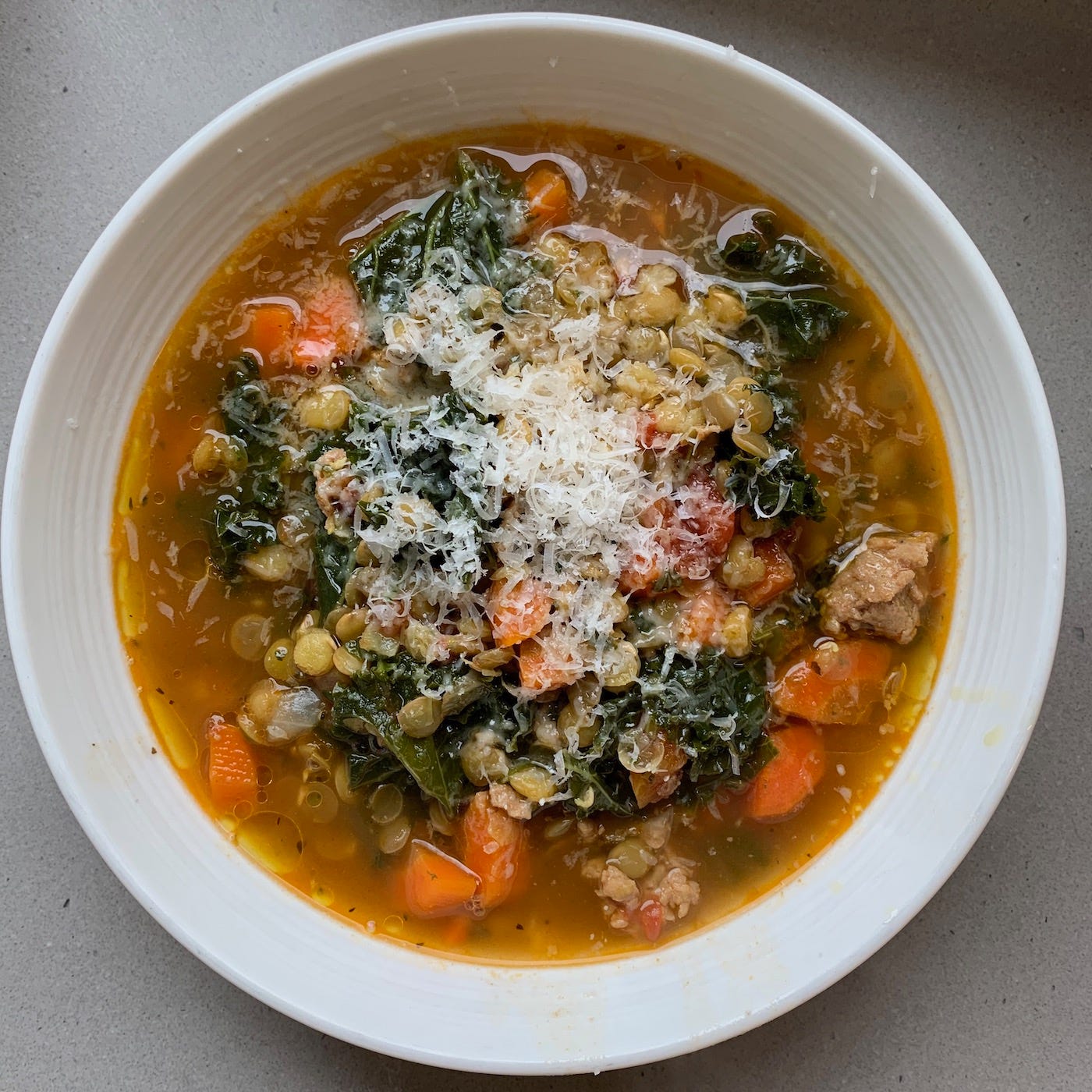Several months ago at a party, a friend asked how much time I spend cooking each day. He follows my food-centric Instagram account and sees the steady flow of meals that I love to make, photograph, and then devour.
I took a sip of my drink while contemplating an accurate answer: "Usually an hour, maybe two at most." He shook his head in disbelief: "I could never do it. It would take me way longer to make food like that."
In the days following the party, I continued to mull over his question because I wanted to help him. This time issue plagues a lot of people in the kitchen; it wasn't the first time I'd heard it. Many individuals want to cook and eat better, but the prospect of adding yet another task to an already jam-packed day is daunting.
I can relate. For years, my husband and I have both worked full-time (up until my layoff in January). We have three school-aged kids in various extracurriculars who practice musical instruments daily. I go to the gym 4-5 times a week. Our weekends are busy. I play in a symphony, which eats up one evening each week plus practice time. We entertain guests twice a week. And yet, we still manage to sit down as a family and eat a home-cooked meal every night. How?
I began analyzing the various things I do to make daily cooking easier and more manageable. The following list of suggestions is a brief overview of my approach, but I acknowledge that everyone's situation is unique. Some tips may work for you, others not. Still, it may be helpful to get a peek at what goes on in someone else's kitchen.
1. Think About It Early
There's nothing worse than trying to figure out what to make when your stomach is growling at 6 p.m. Avoid this at all costs! Think about dinner as early as possible in the day. I usually know by breakfast what's on the dinner menu. This allows me to take necessary steps for easier cooking, i.e. soaking dried beans, taking meat out of the freezer, asking my husband to pick up a crucial ingredient on his way home. It also eliminates any last-minute panic that could result in expensive takeout for five people.
You might prefer making a weekly menu plan, which is helpful. I've gone through phases of doing that, but lately I cook more based on what I've got in the house to keep grocery costs down.
2. Understand Passive vs. Active Time
This fundamental concept of home cooking is rarely discussed, and yet so crucial. I had to teach it explicitly to my husband, who, many years ago, grilled meat before making any side dishes, resulting in cold food and a slightly disgruntled family.
Certain components of a meal need to be started before others so that everything is ready at the same time. And while some items are cooking (passively), you can be doing other things (actively).
For example, I recently made Indian food, and the first thing I made was a batch of naan dough. By the time I'd set the butter chicken to simmer on a back burner, the dough had risen enough to start shaping the breads. If I'd left the dough till the end, well, we wouldn't have had any naan with dinner.
Carla Lalli Music is a cookbook author who talks about this concept in her latest book, That Sounds So Good. She sets up her recipes so that the longest-cooking item is the first thing you see. From her introduction:
"Despite what you might have heard chefs say about their restaurant mise en place, it doesn't always make sense to prep every single thing before you start cooking ... If I'm going to have rice with a meal, I put that on at the top, then use the 18 minutes it takes the rice to cook to make whatever else will be on the table. Rice can sit after it's done, so if it takes me a little longer to finish the other components of the meal, dinner won't suffer."
Good time management and informed prioritizing, she writes, will reduce the overall time you spend on your meals. I cannot emphasize this enough.
3. Cook Ingredients in Larger Quantities
Batch cooking usually refers to making extras of a specific recipe, like spaghetti sauce or chili, and freezing for future meals. This is a great idea in theory, but I can’t seem to manage it. No matter how much food I make, my kids eat it. Instead, I find it’s more helpful to make large quantities of individual ingredients that help me to build future meals in less time.
For example, this could be a huge sheet pan of roasted sweet potatoes or a couple whole roasted squashes, a big jar of pickled red onions, a pot of cooked chickpeas, beans, or lentils, a whole roasted chicken (or two), extra grilled vegetables, a large pot of steamed grains like quinoa, farro, or rice, or a double batch of mashed potatoes. Having these basic building blocks in my fridge means that, the following day, it’s easy to pull together a quinoa-black bean salad, some chicken quesadillas, a pan of fried rice, a shepherd’s pie with chicken or lentils, a creamy butternut squash soup, or a quick chickpea curry.
Lentil-kale soup with leftover sausage
4. Share the Workload
If you live with other people, enlist their help. I generally stop work when my kids get home from school, which gives me 45 minutes to prep dinner and chat with them before leaving for the gym. Then I text my husband a detailed list of what needs to be done while I’m away so that we can sit down to eat as soon as I get home. If he can’t do it, I assign tasks to my kids. There is no reason why several people can't tag-team dinner production, as long as the instructions are laid out clearly.
5. Get Better at Fewer Recipes
Select a handful of dishes that you like to eat and get really good at making those. Keep practicing them, instead of looking for something new every time you cook. These will become your signature recipes, your go-to meals when you need something delicious, and they will build your confidence in the kitchen.
Make notes about what works and what doesn't, marking up cookbooks with a pencil or keeping track on your phone. (This is one reason why I prefer physical cookbooks over recipe websites, but that’s a post for another day.) Eventually you'll branch out and expand your culinary repertoire, but it's worth establishing a small yet solid foundation first. Believe me when I say that variety in the kitchen is overrated; quality matters far more.
This chipotle-rubbed steak is my husband’s specialty; I never complain when he repeats it.
6. Make It Fun
I look forward to cooking each day because it's a satisfying hands-on activity with tangible results that contrasts with my sedentary, cerebral job of editing and writing. I also think of it as a creative escape. It's made more fun by listening to music or an interesting podcast and enjoying a glass of wine or a fancy cocktail while cooking. Often my kids wander in to tell me about their day or to give me a hand, and it becomes a wonderful opportunity for family time. Make it what you want—whether it's a communal activity or much-needed solitude—so that it feels like less of a chore.
I’d love to hear your advice on how to make cooking more efficient, so feel free to share in the comments below.
You might also enjoy: Family Day Bagels








Seems obvious but only something you’d learn from seeing someone do it. My mom is the master of it. I can do two things but the third of it requires cooking is always a gamble. Another great book that helps with these concepts is how to cook without a book.
Just found your writing—a delight! I was struck that you entertain twice a week. Wow. I’d love to hear how you pull that off.